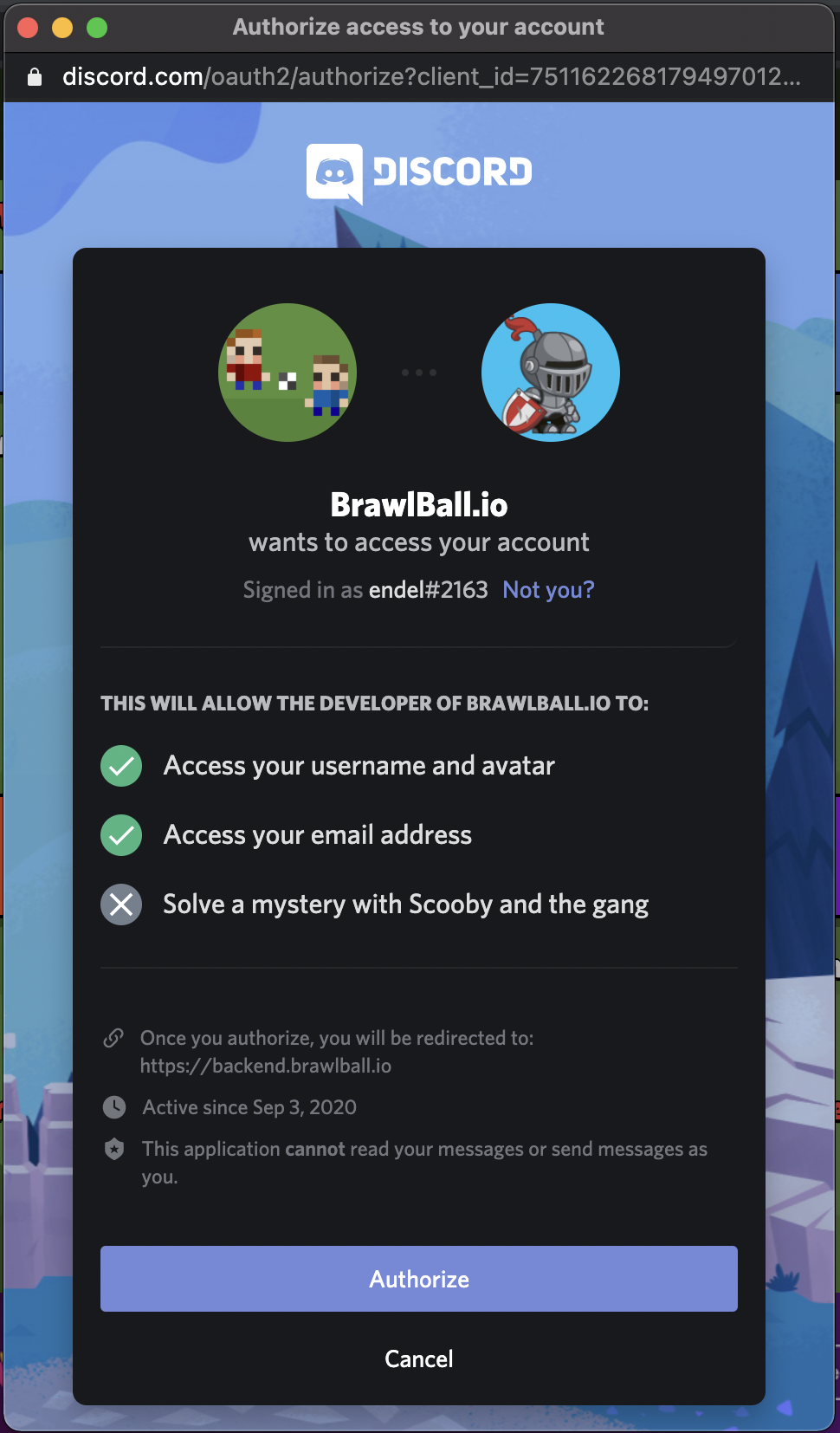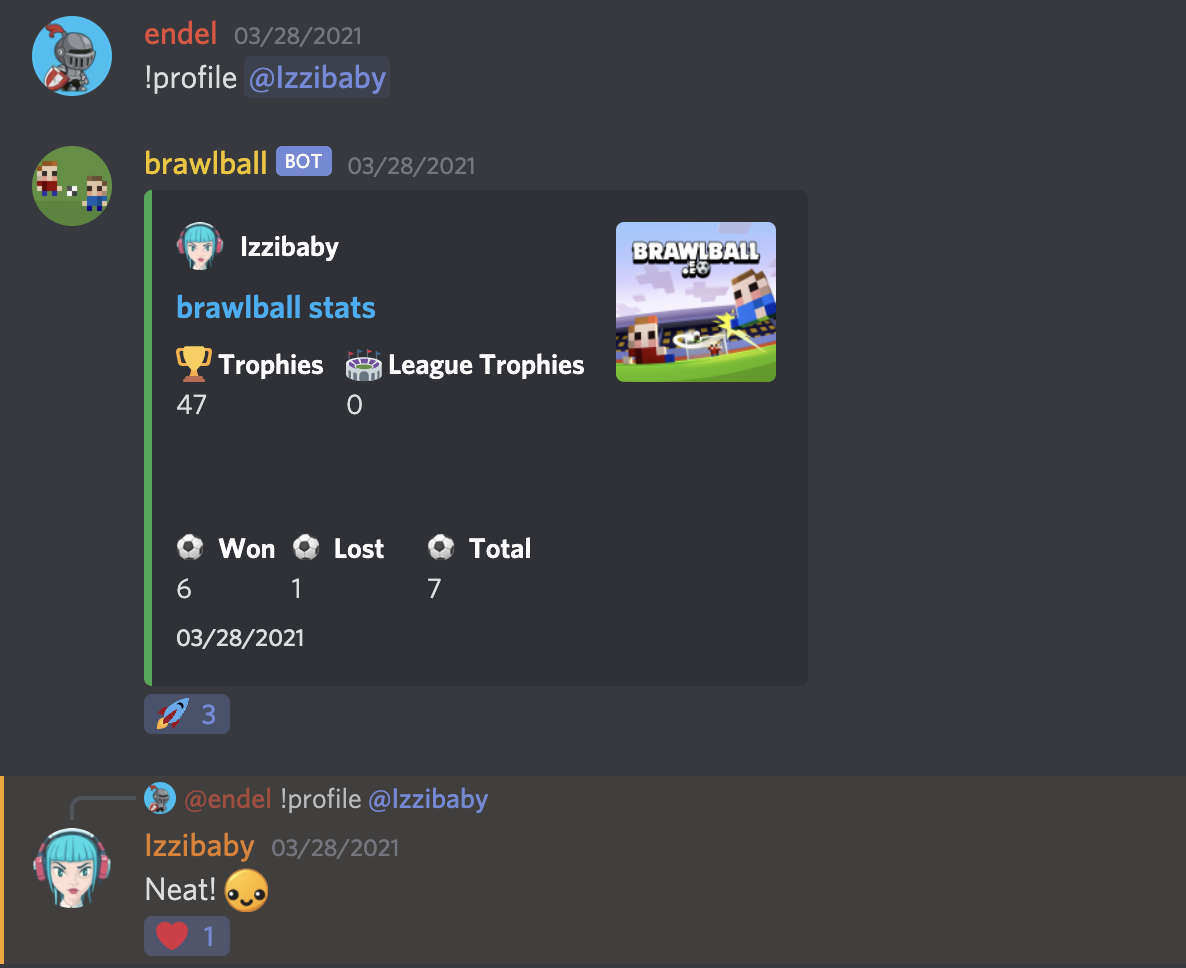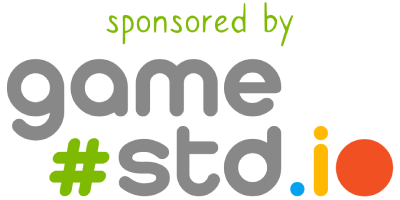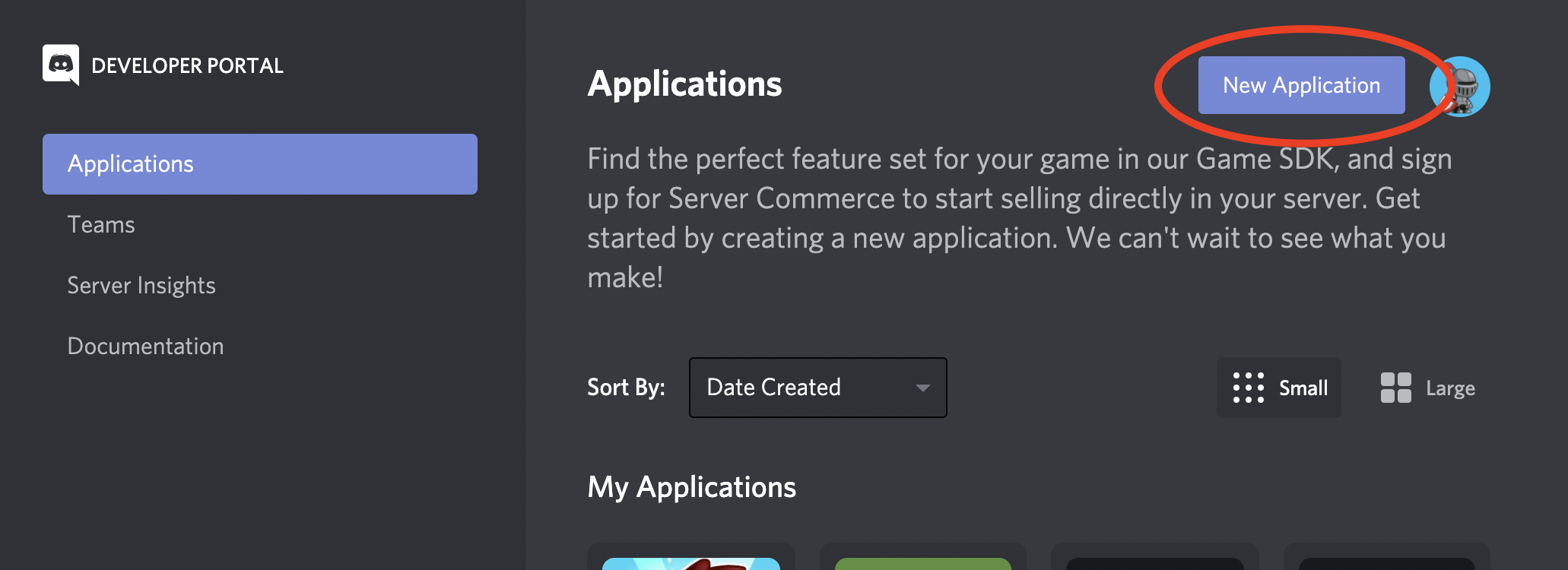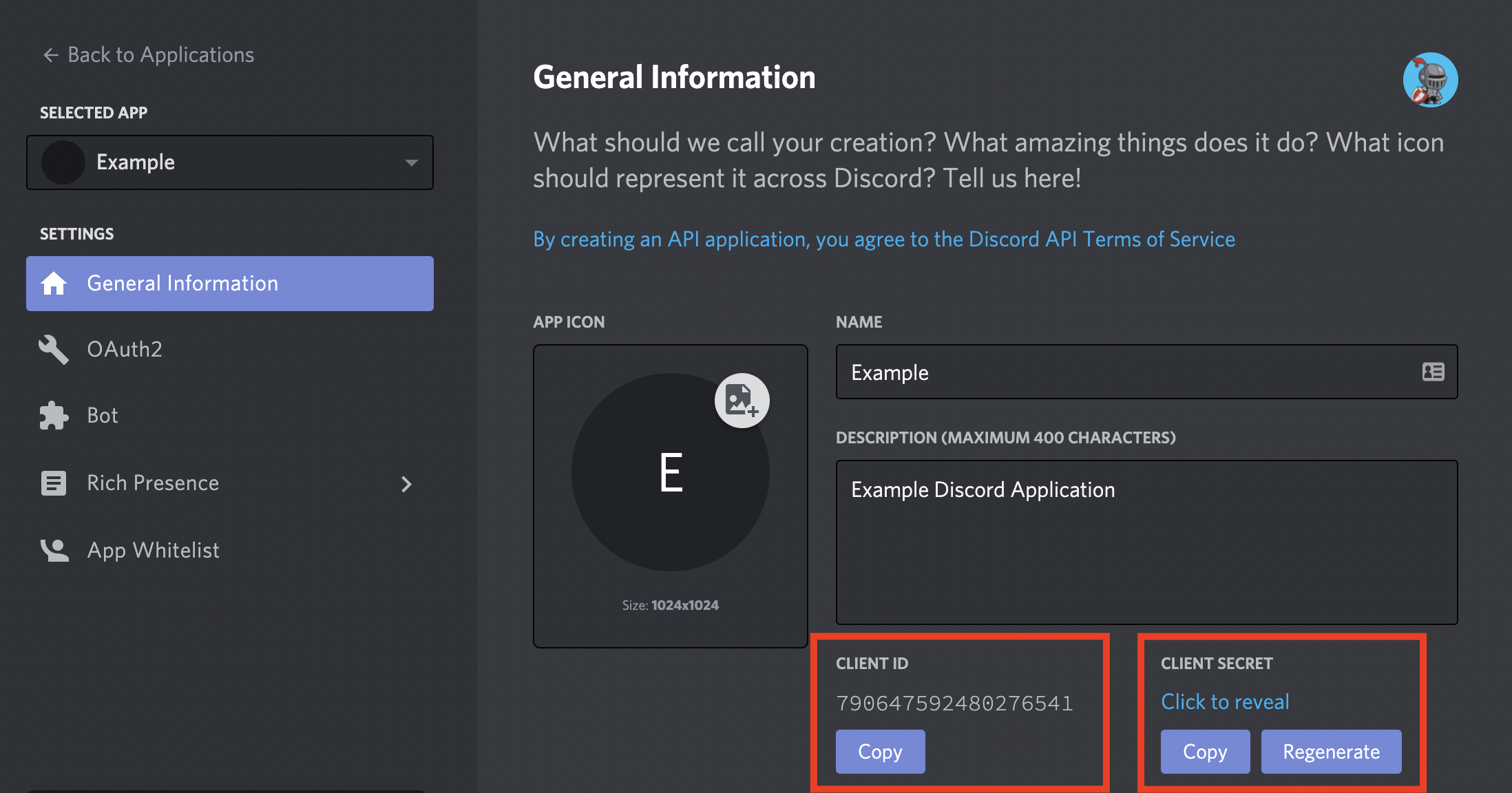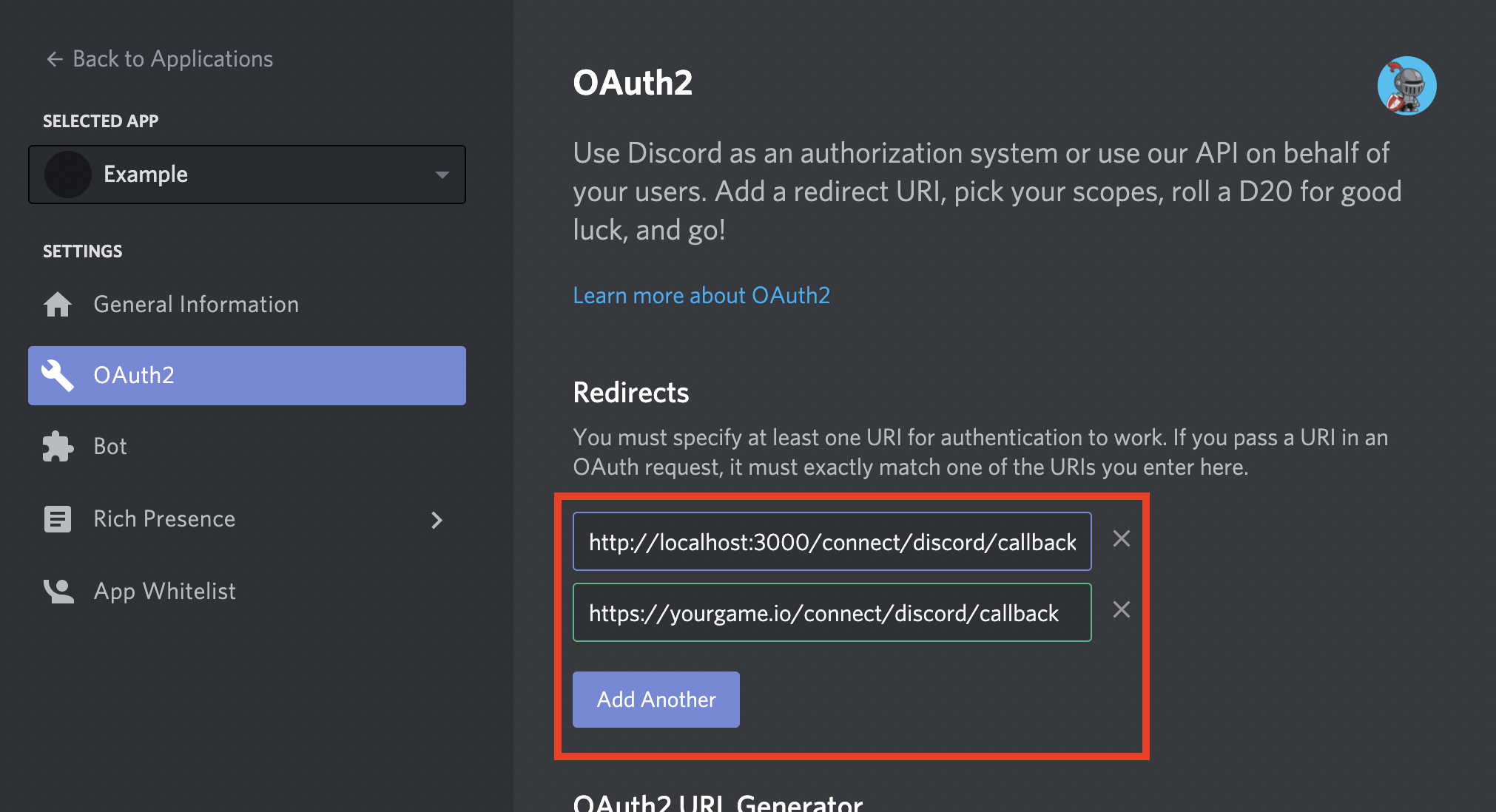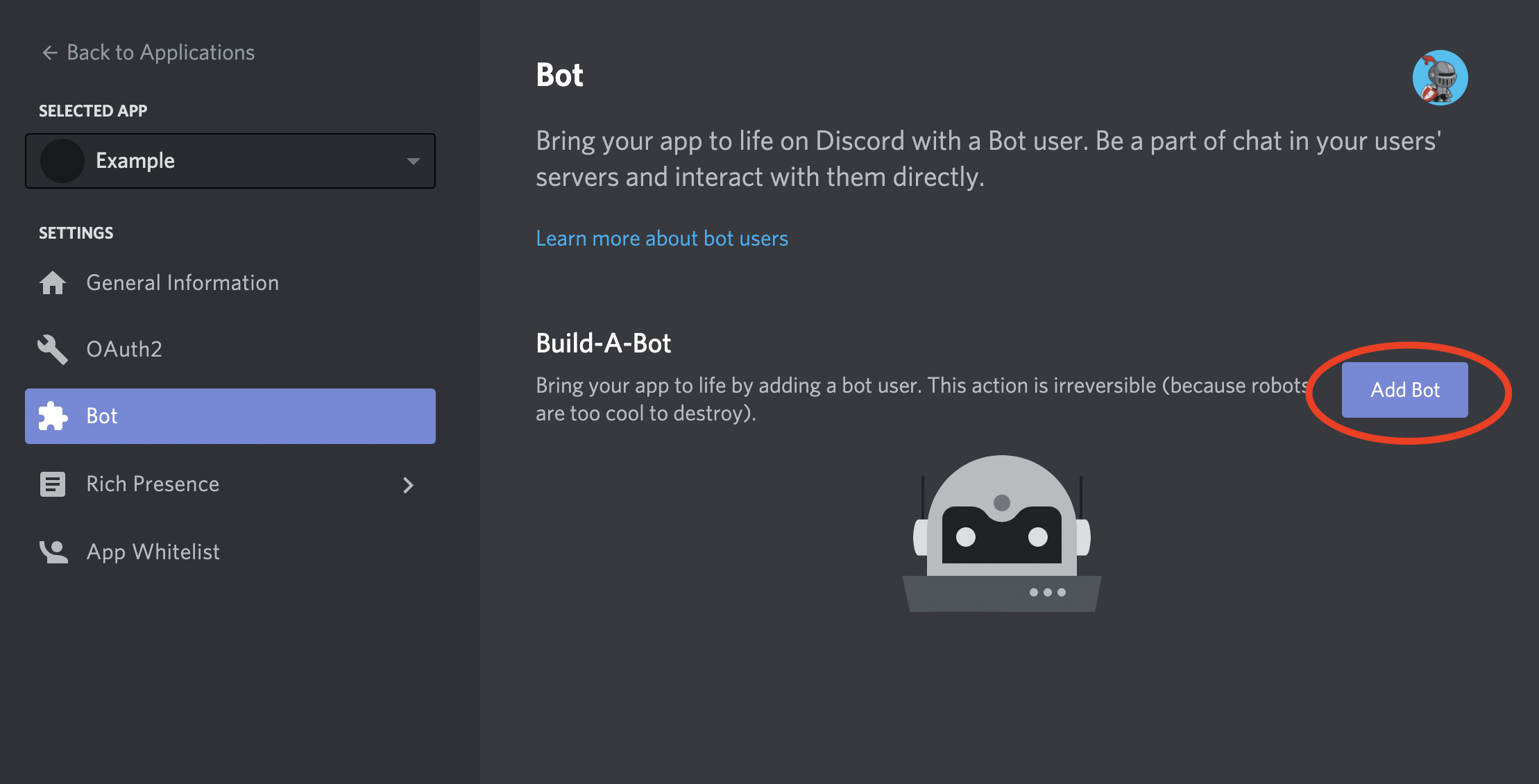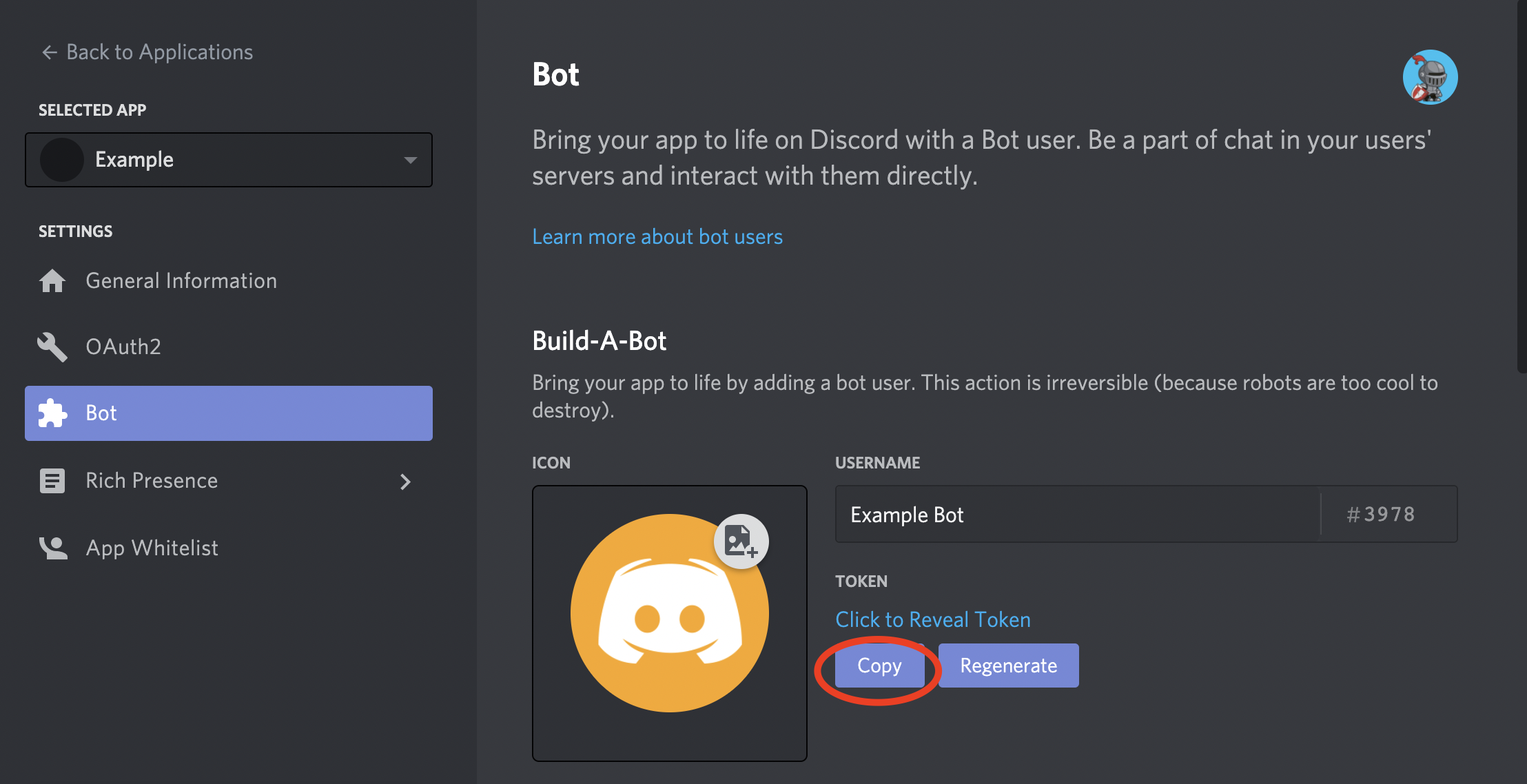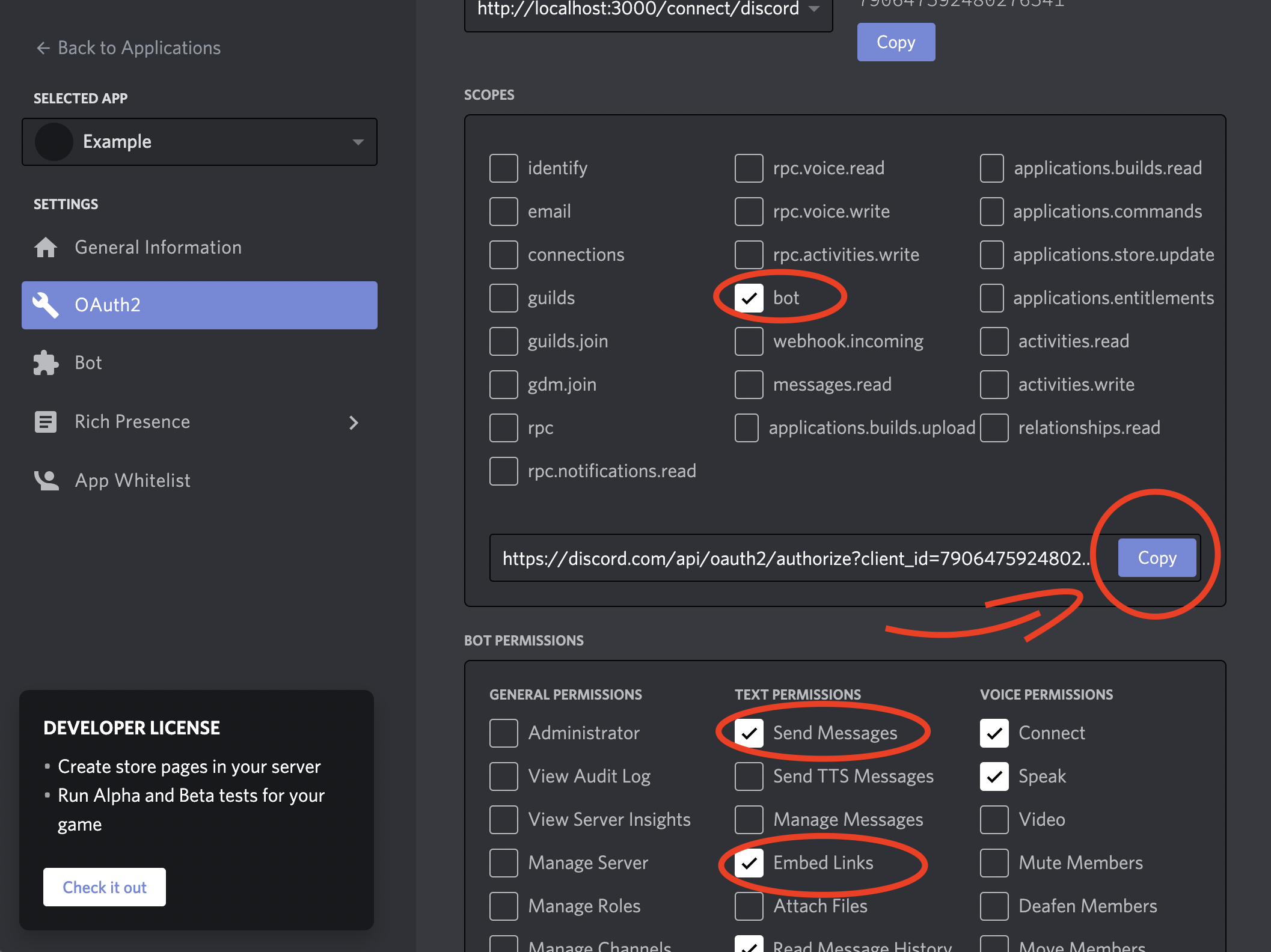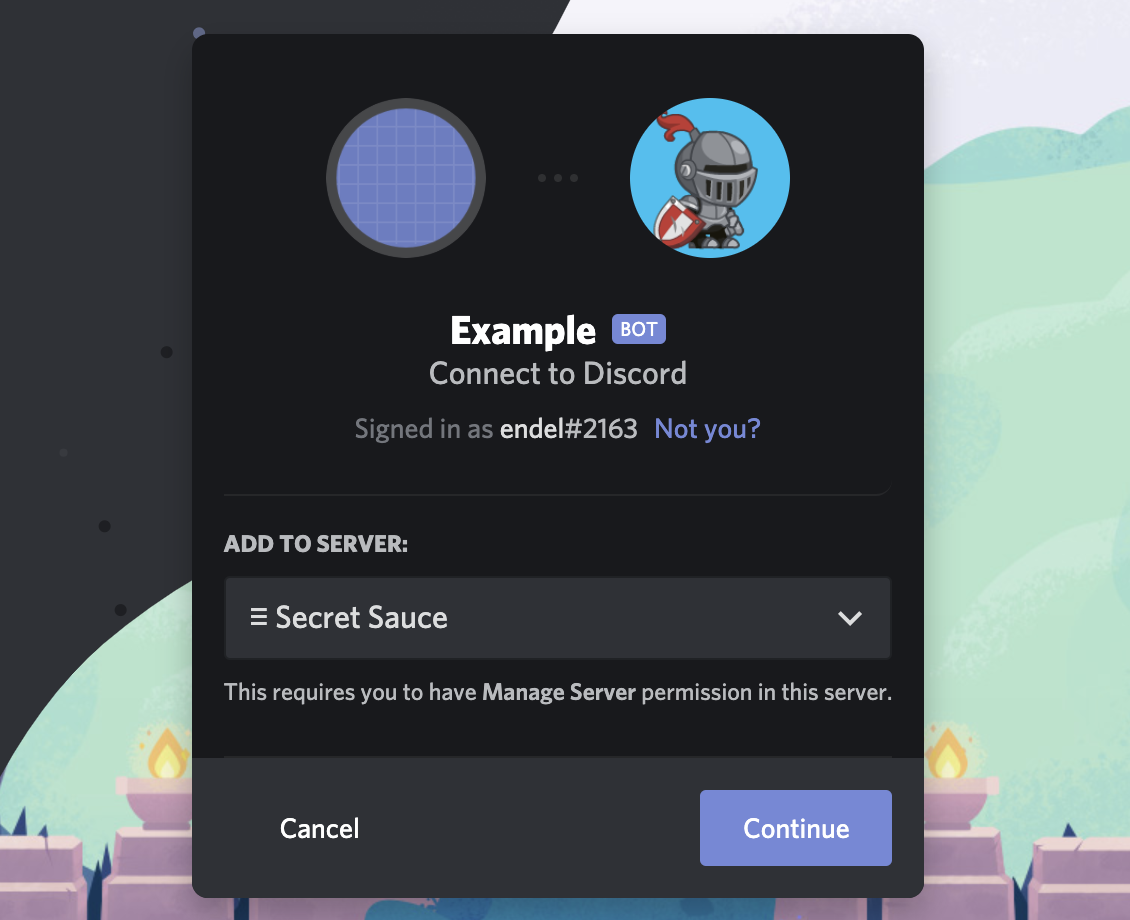The code on this repository is a Node.js application that you can either copy the files over to your existing Node.js application, or build your own stuff on top of it. You should deploy this code on your own server in order to have it working for your game.
What's included here?
- Discord OAuth Integration
- Discord Bot with a
!profilecommand to output the player's profile. - Express routes to authenticate with Discord
- A
Usermodel with default properties, and a database setup. You can add more models as you need.
Node modules in use:
- MikroORM + MongoDB for database access.
- Grant for OAuth integration. Only Discord is being used, but you can easily use more providers such as Google, Twitter, etc.
- Express for binding Grant routes, and custom login.
- JsonWebToken for encrypting and exposing a token containing the
discord_idfor the client-side. - Discord.js for Discord Bot integration.
- Download and install Node.js v14
- Download and install MongoDB Community Edition
- Download and install Visual Studio Code (or other editor of your choice)
To run the project locally, open the folder of this package on your terminal, and run the following commands:
npm install
npm start
You should see the following logs:
> discord-webgame-toolkit@1.0.0 start
> ts-node-dev src/index.ts
[INFO] 13:07:50 ts-node-dev ver. 1.1.6 (using ts-node ver. 9.1.1, typescript ver. 4.1.3)
[discovery] ORM entity discovery started, using ReflectMetadataProvider
[discovery] - processing entity User
[discovery] - processing entity BaseEntity
[discovery] - entity discovery finished, found 2 entities, took 16 ms
[info] MikroORM successfully connected to database discord_webgame_toolkit on mongodb://localhost:27017
Database connected.
Listening on ws://localhost:3000
Application v1.0.0 ready.
Discord bot logged in as Webgame Toolkit#3978!
Go to https://discord.com/developers/applications and click on "New Application".
After having your application created, you need to copy both your CLIENT ID and CLIENT SECRET, and paste it into the .env file.
In the .env file, these values will look like this:
DISCORD_CLIENT_ID=790647592480276541
DISCORD_CLIENT_SECRET=20fgvLavtsc87sMXYdV6ETeSI92LwP8m
Add OAuth Redirect to all possible deployments of your game. You should have at least two entries here:
http://localhost:3000/connect/discord/callback: For testing locally.http://yourgame.io/connect/discord/callback: For the live game (replaceyourgame.ioto where your game is deployed remotely!)
Now let's create the bot for your Discord application:
Copy the "token" of your bot, and paste it into the .env file as well.
In the .env file, the token will look like this:
DISCORD_BOT_TOKEN=NzkwNjQ3NTkyNDgwMjc2NTQx.X-Dp8w.hBQGt-ioJKvaIgdWp0NPFRPIa-w
The last step is to add the bot into your server.
- Select "OAuth" in the sidebar.
- In the "OAuth2 URL Generator", under "scopes" - select "bot".
- Under "Bot permissions", select "Send Messages", and "Embed links". You may select more options if you are going to implement more features on your own!
Now, click on "Copy" in the authorization URL, and open it in your browser. You will be asked to select the server the bot is going to join:
You're done! Have fun making custom bot actions for your game!
The source-code on this repository is very simple, and should be easily exchangeable if you'd like to move it over to an existing project.
MikroORM is an object–relational mapping that supports multiple database engines. On the current set-up, this project uses MongoDB, as you can see on src/config/mikro-orm.config.ts:
// ...
const options: Options = {
type: 'mongo',
entities: [User, BaseEntity],
dbName: 'discord_webgame_toolkit',
// ...See MikroORM documentation if you'd like to use a different database engine.
You can add as many properties as you need in the User model located at src/models/User.ts. You could have a field to keep track of each user's highscores, for example, and more game-specific stats.
To perform operations in your User model, MikroORM requires you to access it from its respective EntityRepository instance:
import { DI } from "../config/database.config";
let user = await DI.userRepository.findOne({ name: /endel/i });You can find the Discord Bot logic at src/config/discord-bot.config.ts. The discord.js API is quite extensive and is very versatile. You can see the full documentation of its capabilities at discord.js.org.
After you deploy this on your own server, make sure to update the BACKEND_URL in your .env file. This step is fundamental due to the way OAuth handle redirects internally.
BACKEND_URL=https://gamestd.io
Above is a real-world example of how this is currently set-up for the public demo.
Copyright © Endel Dreyer. See LICENSE.md for more details.
